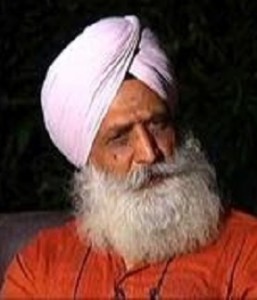Articles/Opinion
OP-ED: Tough going for Aam Aadmi Party (AAP) in Punjab
June 21, 2014 | By Jaspal Singh Sidhu

Jaspal Singh Sidhu
Basically, the Aam Aadmi Party (APP) is the product of Anna Hazare’s movement that began in September 2011 in Delhi against raging corruption during the second inning of the UPA government at the Centre.
The movement that had enjoyed the media’s glance reached the nook and corner of the country, later to be converted into a political party with Arvind Kejriwal as its nucleus persona. The party’s unexpected victory in the Delhi assembly polls in 2013, a few seats short of the majority, proved a game-changer for electoral politics, hitherto, divided between main two parties — the Congress and the Bharatiya Janata Party (BJP).
Bouyed up by the electoral success of its maiden experiment in Delhi and its resounding impact on the country in the run up to the 2014 parliamentary polls, the AAP leadership, after internal pulls and pushes, decided to participate in the Lok Sabha polls in a big way.
But, the parliamentary polls brought disappointment for the AAP in equal measure to the euphoria the Delhi assembly elections kicked for it. The party also underwent serious internal bickering and churning and is yet recover from the depressive mode it has fallen into.
The party’s sole success of winning four parliament seats, that too unexpectedly, in Punjab was, however, a saving grace. Now, practically, the AAP exists only in Delhi and Punjab. Punjab kept the AAP’s flag waving because the people were bitterly upset with rampaging corruption in governance and the bullying tactics of the Shiromani Akali Dal-BJP combine rulers.
The people of Punjab had earlier seen Congress rule, a bit different to that of the Akalis. So ,they were looking for a third alternative whose silver lining twinkled for them in the AAP. And, without bothering that the candidates had not approached them, Punjabis voted for the AAP raising its vote-share to 24.4 per cent, nearing to that of the Akalis at around 26 per cent. The party had no organizational structure in Punjab. And an “election committee” appointed for the 2014 polling process never matched political maturity required for the job, also wound up later on.
Now, two leaders from the Central leadership are touring Punjab and held meetings with workers at Sangrur, Ludhiana, Patiala, Bhatinda and some other places to organise a party structure in the state. The party may fight two assembly by-elections in the next two-three months.
The AAP party workers belong to two broader streams—one with a Left background struggling for their political placing and the other seeking entry into power politics through a party somewhat wedded to democratic ideals.
On similar lines, the AAP’s four MPs are having divided backgrounds — Dharamvir Gandhi from Patiala and Sadhu Singh from Faridkot were aligned with the Left in the past. Harinder Singh Khalsa who won from Fatehgarh Sahib constituency belongs to the Sikh core and Bhagwant Mann is an adaptable stage personality.
Their different past has attuned to different world views and the four MPs do not have a common political understanding on Punjab and it’s placing in the country. Their only common point is that they got elected on the AAP’s tickets. Hence, the AAP needs a strong leadership in Punjab, which could bridge up the yawning gap between two conflicting political streams. Already, an audible murmuring is there that the leaders of the “election committee” having Left backgrounds had worked against AAP candidates propped as Sikh icons.
Pertinently, AAP leaders with a Left past are still viewing the Punjab problem with its thick shadow lingering onto the present as a product of conflagration between “terrorists”(implied as Sikh terrorists) and New Delhi and its agencies fighting against that terrorism. And, the “people of Punjab” had got crushed in between. The same was the “tone and tenor” of Dharmvir Gandhi’s maiden speech in Parliament. His written speech reflected the nationalistic framework his party’s political line, which borders around the Left’s perception about the trouble period in Punjab. If such political perception overrules, the AAP will hardly have space for accommodating the Sikh viewpoint, which is anti-thesis of what Dharmvir Gandhi had said in parliament.
It is palpably clear that the Sikhs did not go in for the Modi wave—or did not go along with the “Indian Mainstream”. It is very ticklish to devise a political ideology compatible to both — the Hindu (or Left) and the Sikh perceptions and so is the ticklish for AAP to float an organisation in Punjab acceptable to people on the both side of the mental divide.
A conglomeration of the left-over of the Akali-BJP and the redundant Left element seeking placing in the power game will not throw up a strong leadership in Punjab.
The AAP is being perceived as a movement, which needs people of zeal and commitment for demolishing the entrenched, the political class. Otherwise, the people of Punjab will stop fancying the AAP as a party different from other political dispensations.
To Get Sikh Siyasat News Alerts via WhatsApp:
(1) Save Our WhatsApp Number 0091-855-606-7689 to your phone contacts; and
(2) Send us Your Name via WhatsApp. Click Here to Send WhatsApp Message Now.
Sikh Siyasat is on Telegram Now. Subscribe to our Telegram Channel
Related Topics: Aam Aadmi Party, Jaspal Singh Sidhu, Punjab Politics




